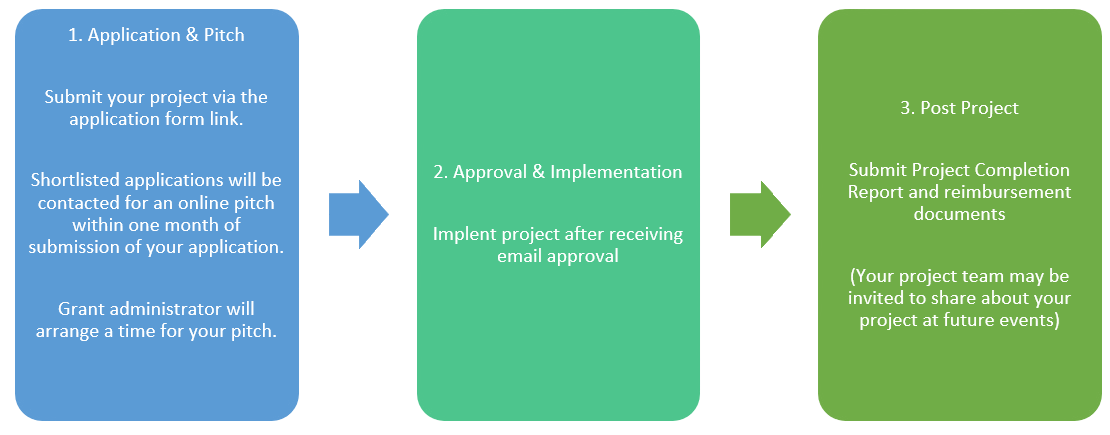Maybank Green Fund

Purpose of Maybank Green Fund
Established with the support of Maybank Singapore, the Maybank Green Fund (MGF) is created to support NUS students in initiating and implementing:
- student-initiated projects and programmes to increase awareness of environmental issues and/or encourage action towards a cleaner and more sustainable environment, targeted at the local community in Singapore.
Funding Details & Consideration
MGF provides funding of up to 100% of the total deficit cost capped at $5,000 per application.
Example of funding calculation: 100% * Total Deficit Cost = 100% * (Total of Supportable expenditures – total income generated from project)
Funding is on a reimbursement basis, students will have to incur and bear all expenses upfront. Students can claim for completed projects as long as it is within the financial year of approval.
Applications will be reviewed on a rolling basis, and all projects must be completed within 12 months from the project start date. Applicants can expect to receive a response within six weeks of submission.
Shortlisted applicants will be invited to participate in a 30-minute online pitch session via Zoom. The administrator will reach out to arrange a suitable date and time.
Application Process
Projects that submit their claims in February/March may obtain reimbursement only in May due to the closing of financial year.

Contact Information
For enquiries, contact community.engagement@nus.edu.sg.

